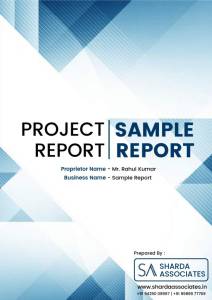Project Report For Calf Rearing
Introduction
Project report for Calf Rearing is as follows.
Calf rearing refers to the process of raising young calves from birth to weaning age, typically around 6-8 weeks old.
This is an important aspect of dairy farming as it directly affects the future productivity and profitability of the farm.
The first step in calf rearing is to ensure that the cow gives birth in a clean and comfortable environment.
The calf should be dried off and allowed to suckle within the first hour of life, as this is essential for the development of the immune system and to establish a strong bond between the calf and its mother.
After a few days, the calf can be separated from its mother and moved to a separate calf pen or hutch.
These should be kept clean and dry, with adequate ventilation and bedding to ensure the calf’s comfort.
Calves should be fed a high-quality milk replacer, which should be formulated to meet their nutritional requirements.
In addition to milk replacer, it is important to provide calves with clean water and a high-quality calf starter feed.
This feed should contain the necessary vitamins, minerals, and nutrients to promote healthy growth and development. Calves should have access to fresh, clean feed and water at all times.
Regular health checks are also crucial in calf rearing. Calves should be checked daily for signs of illness or injury, such as diarrhea, coughing, or lameness.
Vaccinations and preventative treatments may also be necessary to protect against common diseases such as pneumonia and scours.
As the calf grows and develops, it will gradually transition from a milk-based diet to solid feed. This process is known as weaning and should be done gradually over several weeks to minimize stress and ensure a smooth transition.
In summary, calf rearing is an essential component of dairy farming that involves providing young calves with a clean and comfortable environment, a nutritious diet, and regular health checks to promote healthy growth and development.
By following these best practices, farmers can ensure that their calves grow into healthy, productive cows that will contribute to the long-term success of their operation.
Market Potential Of Calf Rearing
According to a report by Research and Markets, the global calf milk replacers market was valued at $2.31 billion in 2019, and it is projected to reach $3.01 billion by 2025, growing at a CAGR of 4.5% during the forecast period.
The global dairy industry has experienced steady growth over the years, with an increasing demand for dairy products such as milk, cheese, and yogurt.
This growth has led to a corresponding increase in the demand for calf rearing services, as farmers seek to maintain and improve their milk production capacity.
In the United States, the calf rearing market is expected to reach $1.93 billion by 2026, growing at a CAGR of 3.3% during the forecast period.
The demand for dairy products in the US has been steadily increasing, and this has led to an increase in the number of dairy farms and, consequently, the need for calf rearing services.
Furthermore, advancements in technology have led to improved calf rearing techniques, resulting in healthier and stronger calves.
In Europe, the calf rearing market is also projected to grow in the coming years, driven by an increasing demand for dairy products, particularly in countries such as Germany, France, and the United Kingdom.
The rising popularity of organic dairy products has also led to an increase in the demand for organically reared calves.
In emerging economies such as India, the calf rearing market is expected to grow due to the increasing demand for dairy products, population growth, and rising disposable incomes.
The Indian dairy industry is one of the largest in the world, with a significant contribution to the country’s economy.
The government has also initiated various schemes to support the dairy industry, such as the National Dairy Plan, which aims to improve the productivity of dairy animals and increase the income of dairy farmers.
In conclusion, the market size of calf rearing is dependent on various factors such as the demand for dairy products, advancements in technology, and government support.
The calf rearing market is expected to continue growing in the coming years, driven by an increasing demand for dairy products and a corresponding need to maintain and improve milk production capacity.
Project Report Sample On Calf Rearing
Need Help?
Create 100% Bankable Project Report

